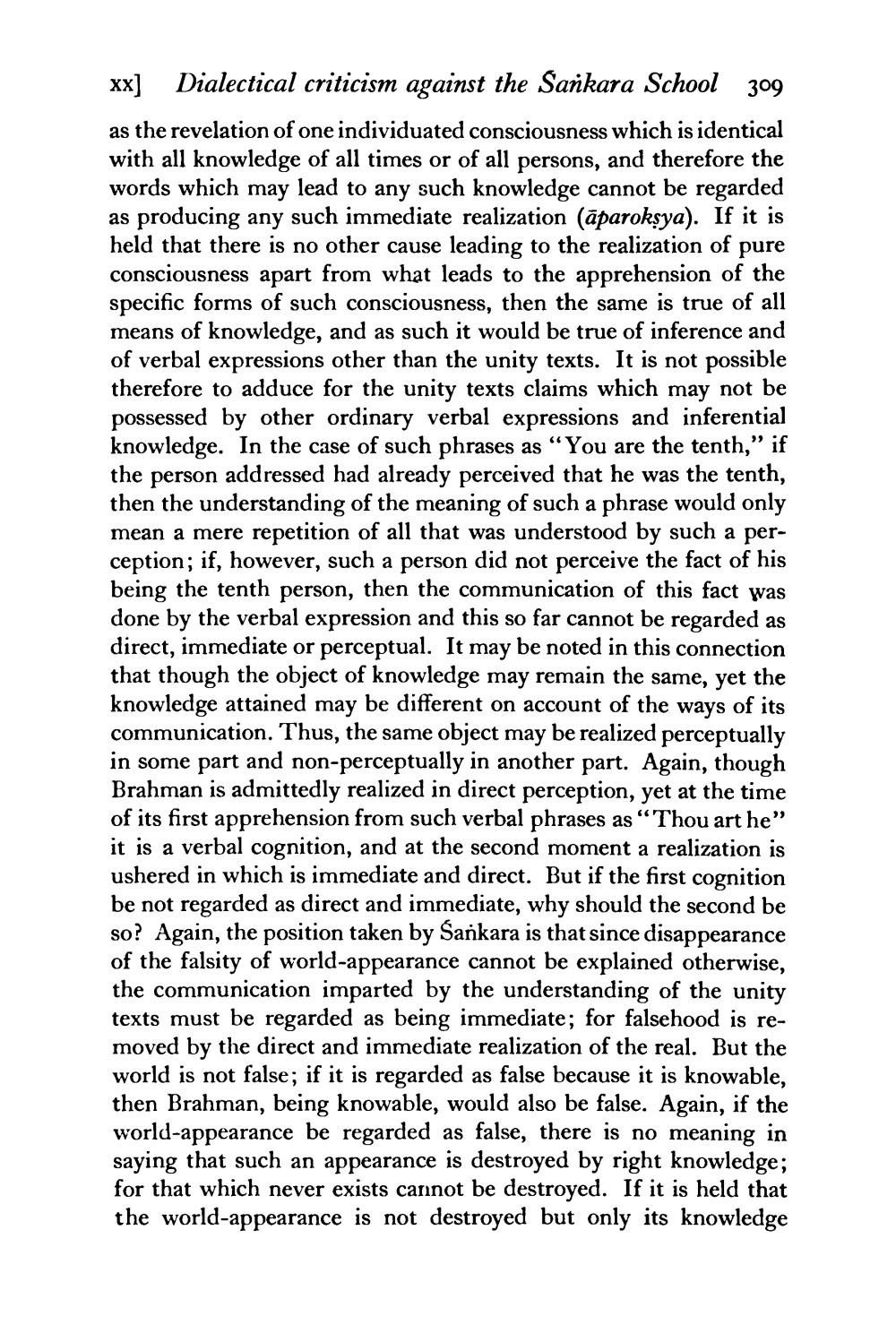________________
xx] Dialectical criticism against the Sankara School 309 as the revelation of one individuated consciousness which is identical with all knowledge of all times or of all persons, and therefore the words which may lead to any such knowledge cannot be regarded as producing any such immediate realization (āparoksya). If it is held that there is no other cause leading to the realization of pure consciousness apart from what leads to the apprehension of the specific forms of such consciousness, then the same is true of all means of knowledge, and as such it would be true of inference and of verbal expressions other than the unity texts. It is not possible therefore to adduce for the unity texts claims which may not be possessed by other ordinary verbal expressions and inferential knowledge. In the case of such phrases as “You are the tenth," if the person addressed had already perceived that he was the tenth, then the understanding of the meaning of such a phrase would only mean a mere repetition of all that was understood by such a perception; if, however, such a person did not perceive the fact of his being the tenth person, then the communication of this fact was done by the verbal expression and this so far cannot be regarded as direct, immediate or perceptual. It may be noted in this connection that though the object of knowledge may remain the same, yet the knowledge attained may be different on account of the ways of its communication. Thus, the same object may be realized perceptually in some part and non-perceptually in another part. Again, though Brahman is admittedly realized in direct perception, yet at the time of its first apprehension from such verbal phrases as “Thou art he" it is a verbal cognition, and at the second moment a realization is ushered in which is immediate and direct. But if the first cognition be not regarded as direct and immediate, why should the second be so? Again, the position taken by Sankara is that since disappearance of the falsity of world-appearance cannot be explained otherwise, the communication imparted by the understanding of the unity texts must be regarded as being immediate; for falsehood is removed by the direct and immediate realization of the real. But the world is not false; if it is regarded as false because it is knowable, then Brahman, being knowable, would also be false. Again, if the world-appearance be regarded as false, there is no meaning in saying that such an appearance is destroyed by right knowledge; for that which never exists cannot be destroyed. If it is held that the world-appearance is not destroyed but only its knowledge




